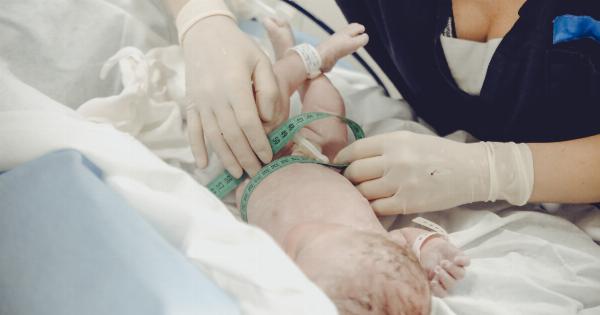Bringing home a newborn is an exciting and joyous time for any parent. But amidst the love and happiness, it is not uncommon for new parents to make some missteps when caring for their little one.
Being aware of these common mistakes can help ensure the well-being and safety of your newborn. In this article, we will discuss ten common missteps in caring for a newborn and provide insights on how to avoid them.
Misstep 1: Improper Support during Holding
One of the most common missteps when caring for a newborn is improper support during holding. Newborns have fragile neck muscles that are not yet fully developed.
Therefore, it is crucial to always support their head and neck when lifting or carrying them. Failing to do so can result in serious injuries to the baby’s delicate spine.
Misstep 2: Incorrect Handling of a Baby’s Fragile Body
As parents, we often have the instinct to hold, cuddle, and kiss our newborns. However, it is essential to remember that their bodies are still fragile. It is crucial to handle newborns gently, avoiding excessive squeezing or shaking.
Rough handling can lead to muscle strain, fractures, or even shaken baby syndrome.
Misstep 3: Neglecting Proper Hand Hygiene
Newborns have developing immune systems and are more susceptible to infections. Neglecting proper hand hygiene can increase the risk of transferring harmful bacteria or viruses to your baby.
Always wash your hands with soap and water before handling your newborn, especially after using the bathroom or coming into contact with germs.
Misstep 4: Overstimulation and Sensory Overload
Newborns are highly sensitive to their surroundings. Exposing them to too much noise, bright lights, or excessive stimulation can overwhelm their delicate senses.
It is important to provide a calm and quiet environment for your baby, especially during sleep times. Limiting noise and minimizing visual stimuli can promote better sleep and reduce restlessness.
Misstep 5: Wrong Swaddling Techniques
Swaddling can provide comfort and security for newborns. However, incorrect swaddling techniques can be hazardous. Improperly swaddling a baby can restrict breathing or cause overheating.
Educate yourself on the proper way to swaddle your baby, leaving enough room for their legs to move and ensuring that the swaddle is not too tight around their chest.
Misstep 6: Inadequate Burping
After feeding, it is crucial to help your newborn release any trapped air by burping them. Failing to do so can lead to discomfort and colic. Gently pat or rub your baby’s back to encourage burping.
It is important to note that different babies may require different burping techniques, so try various methods to find what works best for your little one.
Misstep 7: Ignoring Proper Feeding Techniques
Proper feeding techniques are vital for a newborn’s health and can prevent issues such as choking or overfeeding. Whether you choose breastfeeding or bottle-feeding, ensure your baby is in a comfortable and supported position during feedings.
Avoid propping bottles as it increases the risk of choking. Additionally, follow age-appropriate feeding guidelines to prevent overfeeding or underfeeding.
Misstep 8: Delaying Sleep Training
Establishing healthy sleep habits early on is crucial for both the baby and the parents’ well-being.
Delaying sleep training or failing to establish a consistent sleep routine can result in sleep difficulties for the baby and exhaustion for the parents. Consult with your pediatrician on age-appropriate sleep schedules and consider gentle sleep training methods to help your newborn develop healthy sleep habits.
Misstep 9: Not Seeking Help or Guidance
Caring for a newborn can be overwhelming, especially for first-time parents. Many feel hesitant to seek help or guidance, fearing judgment or inadequacy.
However, reaching out to healthcare professionals, support groups, or experienced parents can provide valuable insights, reassurance, and advice. Remember, it takes a village to raise a child, and seeking help is a sign of strength, not weakness.
Misstep 10: Neglecting Self-Care
While caring for a newborn is undoubtedly demanding, it is crucial not to neglect self-care. Sleep deprivation, exhaustion, and constant attention to the baby’s needs can take a toll on a parent’s well-being.
Remember to prioritize your own physical and mental health, ask for help when needed, and take breaks to recharge. Taking care of yourself allows you to be a better caregiver for your newborn.
Conclusion
Caring for a newborn is a journey full of learning and adjustments. By being aware of the common missteps mentioned above and taking proactive measures to avoid them, you can provide a safe, nurturing, and loving environment for your little one.
Always remember that mistakes happen, and what matters most is your willingness to learn and grow as a parent.































